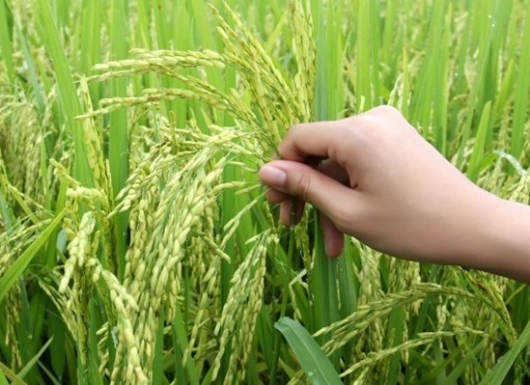Submitter: ICAR
India has a very robust breeding programme, as a result good number of varieties have been bred which have high degree of tolerance to various biotic and abiotic stresses. These varieties can help in facing the challenges of climate change and sustainability in agriculture production.

Since 2014, a total of 3053 field crop varieties have been released out of which 1454 are of Cereals comprising 682 of Rice, 191 of Wheat, 265 of Maize, 86 of Sorghum, 24 of Barley, 83 of Pearl Millet; 23 of Little Millet, 10 of Proso Millet, 9 of Barnyard Millet, 13 of Kodo Millet, 16 of Foxtail Millet, 50 of Finger Millet and 2 of Brown Top Millet,; 432 are of Oilseeds comprising 95 of Soybean, 69 of Groundnut, 68 of Indian Mustard, 53 of Linseed, 34 of Sesame, 25 of Safflower, 24 of Sunflower, 15 of Castor, 13 of Toria, 13 of Niger, 8 each of GobhiSarson and Yellow Sarson, 3 each of Brown Sarson and Taramira, 1 of Karan Rai; 467 are of Pulses comprising 118 of Chickpea, 65 of Pigeon pea, 67 of Mung bean, 59 of Urd bean, 50 of Lentil, 39 of Field pea, 28 of Cowpea, 9 of Horse gram, 10 of Rajmash, 5 of Faba bean, 5 of Cluster bean, 3 of Indian bean, 5 of Moth bean and 4 of Lathyrus; 194 are of Forages comprising 48 of Oat, 40 of Forage Sorghum, 22 of Forage Pearl Millet, 11 of Forage Maize, 14 of Berseem, 9 of Napier Bajra Hybrid, 8 of Forage Cowpea, 5 of Rice bean and 10 of Lucerne, 4 each of Marvel grass and Anjan grass, 3 of Guinea grass, 2 each of Dhaman grass, Rye grass and Forage Sewan grass, 1 each of Fescue grass, Setaria grass, Dinanath Grass, Black Kolukattai Grass, BundelBajraSquamulatum, Aparajita, JawaharVicia, Hedge Lucerne, Sesbania and White Clover; 383 are of Fibre comprising 143 of Cotton, 196 of Bt Cotton, 22 of Jute, 10 of Mesta (Roselle), 8 of Mesta (Kenaf), 3 of Sunhemp and 1 of Ramie; 90 are of Sugarcane and 33 of Others comprising 16 of Grain Amaranth, 3 of Kalingada seed, 1 each of Quinoa, Buckwheat and Broad bean.2 of Asalio, 3 of Winged bean and 6 of Tobacco. Thes varieties can be shared with the collaborating countries for direct introduction.
The above varieties have been bred for different agro-climatic conditions of the country and site specific too. By mapping the agro-climatic conditions of the destination nations, these varieties can be introduced directly in the similar environmental conditions.
These varieties have helped in continuous enhancement in total food grain production during past five years even under bad weather conditions too.
With the availability of seed and the package of practices, these varieties can be grown in the similar environmental condition countries
Deputy Director General (Crop Science), Indian Council of Agricultural Research, New Delhi
Email: ddgcs.icar@nic.in
Phone: 91-11-23382545, 23046560